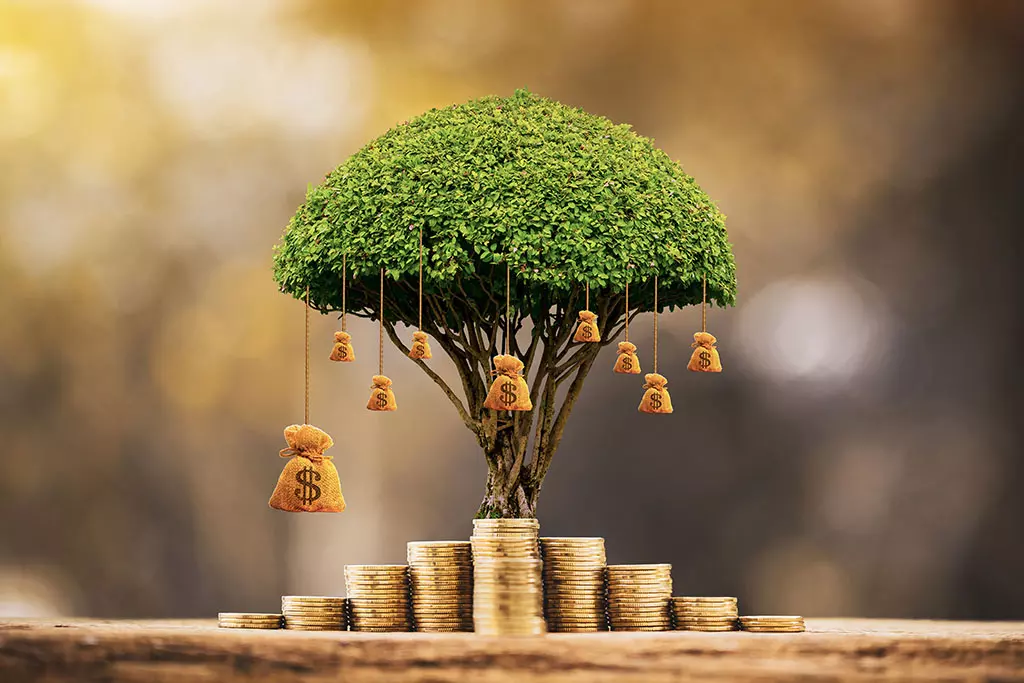
8 Smart Steps to Money and Personal Finance Mastery
Schools often prepare us to be good employees, but when we begin our careers, many discover we have little knowledge of money management.
Personal finance is often not taught in classrooms, and sadly, our parents might not have provided the best examples of how to handle finances well. Because of this, it’s up to us to learn about personal finance on our own.
I designed this article for individuals eager to enhance their understanding of personal finance and develop foundational money management skills. I hope this content serves as a stepping stone for those embarking on their journey toward financial literacy, empowering them to make informed decisions about saving, budgeting, investing, and debt management. By exploring essential concepts and practical strategies, I hope you can gain the confidence and knowledge necessary to navigate their financial landscapes, ultimately leading to smarter money choices and a more secure financial future.
1. Understanding Money: A Balanced Perspective

How we define money can significantly influence our lives and the decisions we make regarding it. Our beliefs and attitudes towards money can dictate not only how we attract it but also how we manage it. If we hold negative thoughts about money, such as viewing it as something that brings trouble, we may struggle to accumulate wealth. It’s essential to take a moment to reflect on what money means to us personally. This concept can serve as a valuable exercise in understanding our relationship with money.
To begin this reflection, take a few minutes to write down your definition of money.
What does money represent for you?
Additionally, jot down any thoughts or feelings that come to mind when you think about money. Don’t overthink this process — allow your thoughts to flow freely. Many people interpret the saying “money is the root of all evil” in a way that casts money in a negative light. Reflect on whether your definitions and thoughts lean toward the positive or negative, as this introspection is essential for reshaping your perspective.
It’s essential to recognize that money is neutral; it’s neither inherently good nor bad. Instead, it serves as a medium of exchange, like energy moving through different forms. Viewing money as neutral can help alleviate guilt or anxiety about wanting or having it. Instead of seeing it as something to be ashamed of, we can understand that it is simply a tool we can use to achieve our goals and provide for ourselves and others.
Revisiting our definitions of money can lead to a healthier approach to it. Start crafting your positive definition. For instance, consider defining money as “energy that facilitates exchange and growth.” We can foster an abundant mindset when we visualize money positively, seeing it as a natural part of life. Remember, in this abundant universe, we can visualize having enough of what we need, including money, without feeling undeserving. By embracing this perspective, we open ourselves to new possibilities and a more fulfilling relationship with money.
2. The Art of Money Defense

Personal finance is much like playing a sport, with two main parts: offense and defense. Offense is about earning money through a job or smart investments, while defense focuses on protecting the money we’ve earned. This idea includes vital activities like saving, budgeting, and being mindful of our spending. To strengthen our financial defense, we must develop solid budgeting skills that help us track our income and expenses. By creating a budget, we can better allocate our funds, ensuring we cover essential costs and set aside money for savings.
Being mindful of our spending is crucial for financial defense. This defense means making thoughtful choices about our purchases instead of acting impulsively. We become better money managers by prioritizing needs over wants and sticking to a budget. Mastering these skills creates a strong financial foundation, helping us handle unexpected challenges while working toward our financial goals.
3. The Art of Money Offense
Offense refers to how we earn money, encompassing our jobs and entrepreneurial efforts. To excel in this area, we need to focus on enhancing our employability. This often means acquiring and honing new skills that are in demand in the job market. Engaging in education through formal schooling, online courses, or workshops allows us to invest in ourselves. By becoming more skilled and knowledgeable, we significantly boost our chances of finding better job opportunities or advancing in our current roles.
Additionally, exploring entrepreneurial avenues can significantly increase our income. Starting a successful business or launching a side gig diversifies our income streams and allows for greater financial freedom. Taking the initiative to pursue these avenues requires creativity, determination, and willingness to learn from failures. Whether offering a service, creating a product, or finding a niche market, these proactive steps can lead to more money flowing into our lives, ultimately providing us with greater security and opportunities for the future.
For more tips, read: 8 Lessons from the Richest Man in Babylon (On Wealth Building).
4. Living Below Our Means

Living below our means is essential for financial stability. To determine if we manage our money wisely, we must analyze our financial situation accurately. Begin by tracking your cash flow using tools like Excel or Google Sheets. Spend a few months recording how much you earn and spend. There are also free apps and websites available, such as Mint.com, that can simplify this process. Once you have a clear picture of your income and expenses, you’ll easily identify whether you live above, within, or below your means. If your spending exceeds your income or is too close for comfort, it’s time to make some necessary cuts to your budget.
After addressing your cash flow, focus on building an Emergency Fund. This fund is a financial safety net for unexpected events like job loss, medical emergencies, or other unforeseen circumstances. Establishing an Emergency Fund should be your top priority when saving money. Aim to save at least three to six months’ worth of living expenses in this account. This cushion will provide peace of mind and protect you from falling into debt when life throws a curveball. You can achieve greater financial security and peace of mind by managing your finances and preparing for emergencies.
5. Build an Emergency Fund

Building an emergency fund is crucial. Aim to save up to 6-8 months’ expenses. How do we achieve that? First, we need to know our monthly expenses, which is why tracking them is essential. This method helps us understand how much money comes in and how much goes out each month.
Here’s how to get started:
Step 1. Calculate Your Monthly Expenses:
Start by adding all your monthly expenses. For example, if you pay $500 for rent, $200 for food, $200 for transportation, and $100 for utilities, your total would be:
$500 rent + $200 food + $200 transportation + $100 utilities = $1,000 Total Month Expense
Your one-month expense is $1,000. Remember that monthly costs can vary, especially around holidays like December. To get a better picture, track your spending over 3-4 months and find the average. For now, let’s use $1,000 as an example.
Step 2. Set Your Emergency Fund Goal
Multiply your monthly expenses by 6-8 months to find your emergency fund target. For example:
$ 1,000 One-month Total Expenses x 8 months = $8,000 (8-month Emergency Fund)
This idea means you’ll need $8,000 for your emergency fund. This is your goal, and working towards saving that amount is important.
If saving 6-8 months’ worth of expenses seems overwhelming, start small. Aim first to save $1,000. You can achieve this by selling items you no longer need or cutting back on things like your daily coffee runs. Once you reach that $1,000, keep saving until you hit your emergency fund goal.
Where to Keep Your Emergency Fund
Store your emergency fund in an account that’s not easily accessible. This fund should only be for emergencies, so avoid dipping into it for anything else. I recommend using an online bank like Capital One’s Orange Savings Account.
When choosing an online bank, you must log in and create a transaction to transfer money to your regular bank. This step means that while your money is liquid and available, it’s not easy to access. This helps prevent you from using the fund for impulse purchases or any expenses other than emergencies.
6. Define Want vs. Need
Understanding the difference between “want” and “need” is crucial for managing our finances effectively. A “need” refers to something essential for survival or basic functioning. For instance, we need water to stay hydrated; our health and well-being suffer without it. On the other hand, a “want” is something we desire but can live without. We might want a new pair of shoes, but as long as we have at least one pair that serves its purpose, we can manage just fine. Recognizing this distinction helps us make better choices about our spending.
When people blur the lines between wants and needs, they often feel compelled to make purchases they can’t afford. This mindset leads to unnecessary financial strain. For example, while we might feel we desperately “need” the latest smartphone if our current phone is functioning well, it’s just a want. By acknowledging that many items we consider essential are merely desires, we empower ourselves to delay these purchases until we can genuinely afford them. This shift in perspective can significantly affect our overall financial health.
Furthermore, being honest about our wants can lead to smarter shopping habits. When we differentiate between what we genuinely need and want, we will likely buy less and save more. By deferring our wants, we can explore options for better prices or even bargain for discounts, especially when shopping online. Ultimately, the more we practice distinguishing between needs and wants, the more control we gain over our financial decisions, leading to less impulsive buying and a more secure financial future.
7. Cash vs. Credit

Cash is king, and understanding its importance can significantly impact our financial well-being. Our grandparents previously relied on cash for all their purchases because credit cards did not exist. This idea meant they avoided the debt pitfalls many of us face today. Credit cards can often lead to overspending, as they allow us to make purchases without having the actual cash on hand. When we use these cards, we frequently spend money we haven’t earned yet, leading us into financial traps that can be hard to escape.
Using a credit card can feel convenient, but it can quickly become dangerous if we aren’t careful. If we can’t pay off our monthly credit card balance, we carry debt accumulating interest over time. This debt can weigh us down, making us feel financially enslaved to banks and credit companies. In contrast, using a debit card provides a safer option because it limits our spending to the money we have in our bank account. With a debit card, each transaction deducts funds directly from our available balance, helping us stay grounded in our financial reality.
One of the most significant risks of using credit or debit cards is the temptation to overspend. Cash makes us more aware of our financial situation. When we handle money, we’re more likely to think twice before parting with it because we can physically see how much we have. In contrast, using cards can create a disconnect, making it easier to overlook how much we’re spending. To maintain better control over our finances, using cash or debit cards can help us develop a healthier relationship with our money and avoid the pitfalls of debt.
Once we fully know our finances, we can consider using credit cards. Responsible credit card use means never carrying a balance and paying off the credit card each month.
8. Minimize and Declutter

A cluttered home can seriously impact your finances. Many individuals with financial difficulties tend to live in disorganized environments with unnecessary belongings. This clutter blocks our potential. Feng Shui is a practice that has guided energy balance in living spaces for over 3,000 years. Feng Shui emphasizes the importance of a clean, organized environment to foster positive energy flow. When our homes are cluttered, the energy gets trapped, preventing us from attracting good health and abundance into our lives. Read: 8 Feng Shui Tips to Improve Your Home and Life.
It’s time to take action and declutter your space! Start by sorting through your belongings and identifying items you no longer need. Sell anything that still has value, donate items that others can use, and toss anything that is broken or unrepairable. Being decisive about what to keep and what to let go of. As you clear out the clutter, you will free up energy that these unnecessary possessions have held back. The more you remove, the lighter and more positive your living environment will become.
Having a clean and organized home not only creates a pleasant atmosphere but also encourages mindful consumption. Knowing you don’t have the space for unnecessary items like extra kitchen gadgets, you’ll find it easier to resist the urge to purchase unnecessary items. A tidy home cultivates feelings of comfort and gratitude, setting the stage for positive energy and abundance. By embracing this decluttering journey, we’re paving the way for a more fulfilling and prosperous future.




